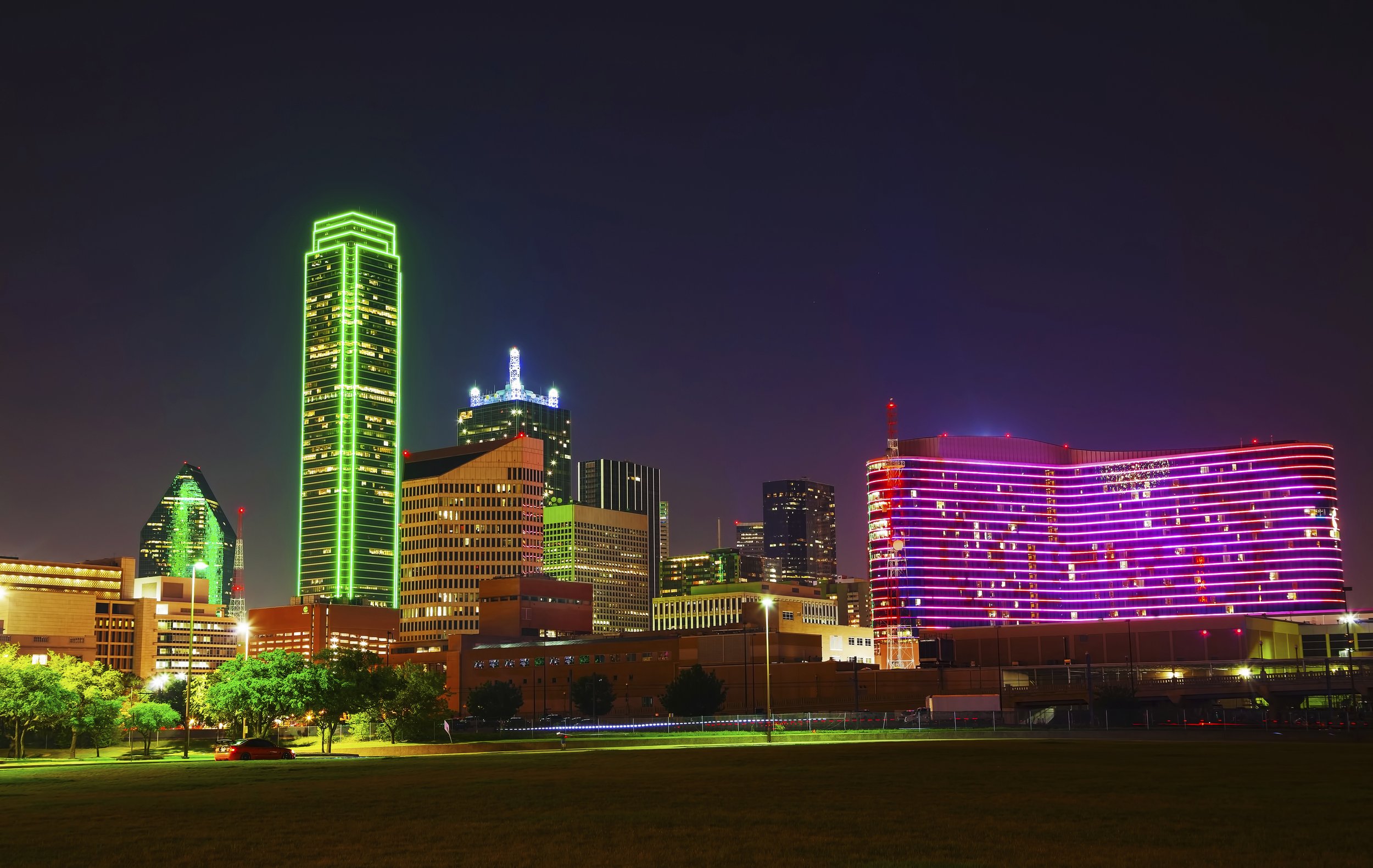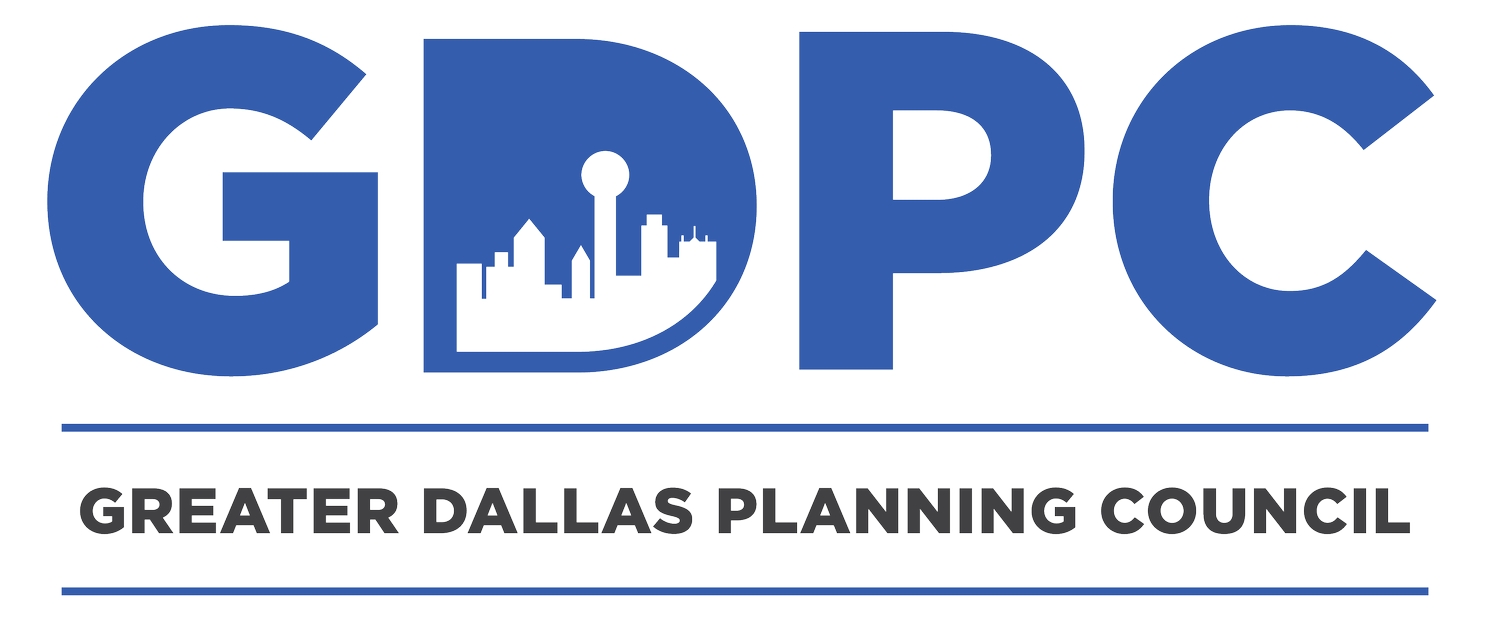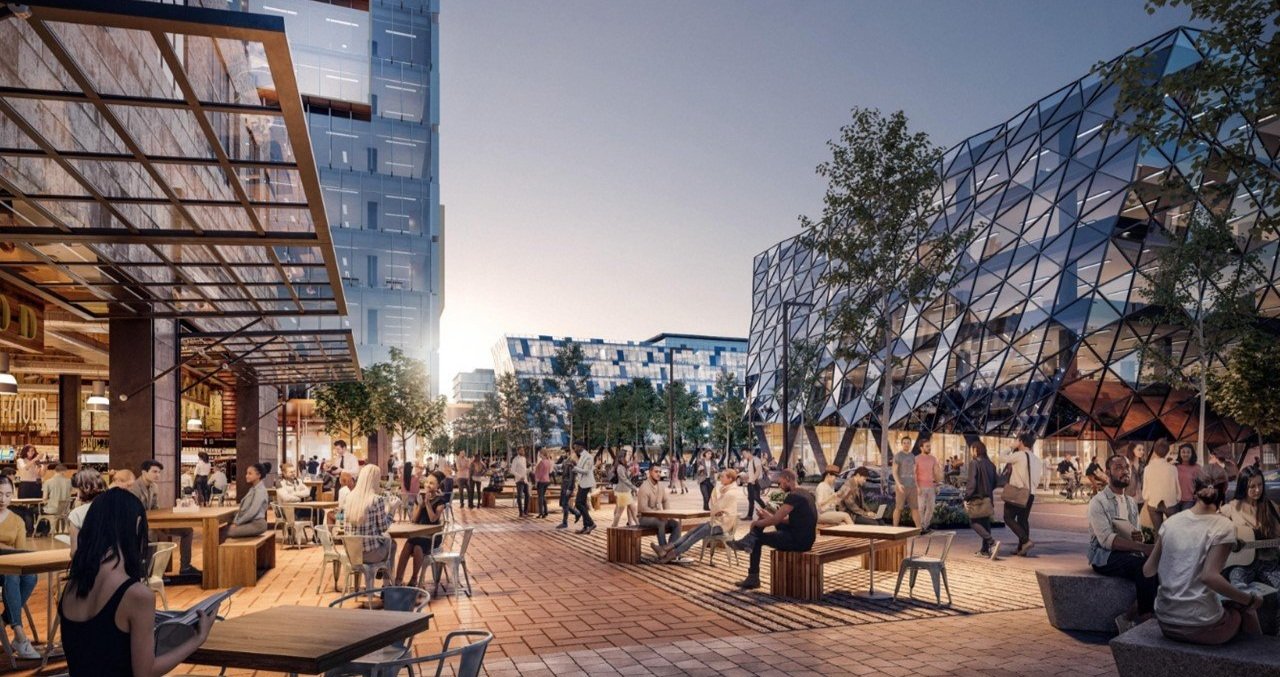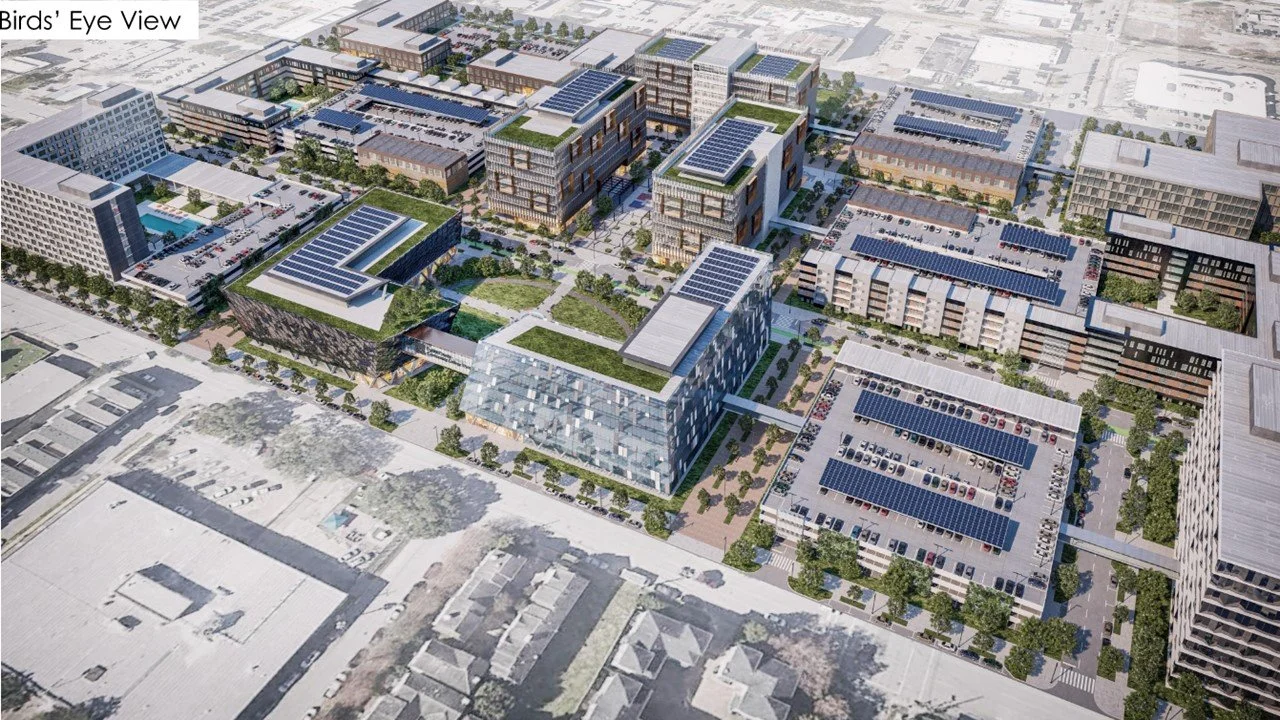
Urban Design Awards
Urban Design Award Categories
GDPC has an annual tradition of honoring outstanding urban planning and design projects in our six distinctive Urban Design Award categories. Nominations are accepted from the following counties: Denton, Collin, Hunt, Rockwall, Dallas, Tarrant, Johnson, Ellis and Kaufman.
Built Project Award
For a project completed within the last five years that improves the character, sense of place and fabric of the community, and has the potential to catalyze positive change in the built environment. Projects should contribute to the public realm while also enhancing the transition from public to private or private to public space and creates a successful private or public space.
Dream/Study Award
For projects that exemplify best practices in urban design and employs innovative strategies to improve the quality of place, artistic value, and/or quality of life in the community. If the project were to be built or implemented, it should embody the criteria for the Built Awards. The proposed project should be an asset to the community.
Kessler Lifetime Achievement Award
Individuals nominated should demonstrate a lasting and significant commitment along with sustained sensitivity to the urban environment – clearly contributing to great urban design and sustainability. He or she should also demonstrate continued influence and set examples for others to emulate. Prior recipients of the Kessler Award are not eligible.
Dunnigan Community Engagement Award
Nominees (either an individual or group) should demonstrate excellence in community outreach on issues affecting quality growth of the region. The named nominee shall also advance the dialogue around sound urban planning and design in the region. They should utilize different mediums to engage their community including but not limited to print, television, video, radio or social media.
Mark Goode Urban Pioneer Award
Nominees (either an individual or group) should exemplify risk-taking and innovation in the field. Nominees should also promote and advocate for new and innovative ideas and changes in the urban environment and/or community advocacy. Candidates should exhibit extraordinary initiative and impact within a recent timeframe.
Student Award
Nominated proposed projects should exemplify best practices in urban design and employ innovative strategies to improve the quality of place, artistic value, and/or quality of life in the community. Nominations should explain how the proposed project be an asset to the community.
GDPC has an annual tradition of honoring outstanding urban planning and design projects in our six distinctive Urban Design Award categories:
See the counties that are in the Dallas Region for submission of projects.
If you’re interested in entering your project for a 2023 Urban Design Award, please download the nomination form below. Nominations are due by Friday, November 10, 2023.
Built / Unbuilt Categories:
Built Project Award
Dream/Study Project Award
Student Dream/Study Project Award
Individual / Organizational Awards
Kessler Lifetime Achievement Award
Dunnigan Community Engagement Award
Mark Goode Urban Pioneer Award
2022 Winners
Built Project Award Winner: Hillcrest Village Green
TBG Partners, Omniplan, City of Dallas, SHOP Companies, Charles Gojer and Associates, RSM, Roeschco
Hillcrest Village takes an innovative and strategic approach to fostering livable communities and public space through public/private partnership. This 1.5 acre park supports Dallas City Hall’s Quality of Life Objectives and provides restaurant and retail services and jobs to the community. The City’s Department of Parks and Recreation engaged TBG Partners to actively engage the neighborhood to identify community priorities. The resulting green space is designed to create a seamless experience for visitors as the design supports active integration of commercial uses with park open space and programmed activities. The park delivers a fresh, flexible and modern experience that aligns with current trends in today’s best urban parks and provides a living lab for environmental, social and economic performance. This phenomenal project sets the stage for reimagination of single paved lots toward the goal of thriving public spaces.
Built Project Award Winner: South Oak Cliff Renaissance Park
Trust for Public Land, Dallas Park and Recreation Department, Studio Outside, Hill & Wilkinson
Renaissance Park is a grassroots revitalization resulting in a cherished public space. The vacant lot across from Oak Cliff High School, once overgrown and prone to dumping, is now a community park that promotes health, wellness, and education through the efforts of Trust for Public Land and the master planning and design of Studio Outside. The park opened in November 2021 and features state-of-the-art amenities that were all requested by the community, including free public WiFi, solar-powered lights, security cameras, an outdoor classroom, exercise equipment, all-abilities playground, and a climbing wall funded by The North Face. This newly opened park has already become a beloved amenity for the neighborhood.
Unbuilt Dream / Study Award Winner: The Catalyst Group / Dallas College
Complete Landsculpture (Design Firm) / Evan & Jordan August (project owner) TKTR Architects / Hill and Wilkinson
Dallas College embodies the innovation and urban design principals of a Dream Unbuilt project, employing innovative strategies to improve the quality of place, artistic value, and quality of life through its strategic approach to integrating surrounding communities into each of their seven campuses. Dallas College engaged the Catalyst Group in this initiative, involving the addition of new programming, both public and private, to better serve the on-campus population of students and employees as well as each surrounding community. Plans were prepared to overcome the large barrier of underutilized space between each community and its campus through the addition of new campus programming and open spaces combined with private development of office, restaurants, and a variety of residential types. Through varying approaches, each plan expanded the core campus villages into a mixed-use urban design emphasizing key open spaces and centers of activity to help better position each campus’ sense of identity, formality, and accessibility.
DUNNIGAN COMMUNITY ENGAGEMENT AWARD:
Robert Kent: Trust for Public Land
Robert Kent demonstrates community engagement excellence. Under Robert’s leadership, the Trust for Public Land is making an impact on the betterment of the Dallas region and advocating for parks within a ten minute walk of all Dallas residents. Robert and his colleagues in Texas have developed city- and regional-scale conservation plans, acquired hundreds of acres of land for new parks and nature preserves, developed numerous community-driven park master plans, advocated for hundreds of millions of dollars in new public funding for parks and conservation, and expanded park access to hundreds of thousands of Texans. His leaderships has promoted the utilization of Smart Growth strategy for Dallas as the foundation of TPL work in North Texas. His multi-disciplinary effort to engage with Dallas residents employs a variety of tools including computer modelling and community engagement to help identify and protect Dallas’s most important natural places, improving the environmental, social, and economic resilience of Dallas.
Kessler Lifetime Achievement Award Winner: Monte Anderson
CEO, Option Real Estate
Monte Anderson has committed his life to his native Southern Dallas County as a community real estate developer and practitioner. In 1991 he started Options Real Estate, a full service real estate company specializing in building and rebuilding neighborhoods that were forgotten by most. In 2006 he led the group that started the North Texas Chapter of the Congress for the New Urbanism (CNU) and served as its first President. In 2015 he co-founded the Incremental Development Alliance, an organization that is committed to creating 1,000 small community based developers all over the country. Recently he and a group of real estate developers started Neighborhood Evolution, with a mission to teach cities and real estate developers how to retrofit their communities in the most efficient and sustainable way. Throughout his career he has served in leadership roles in Oak Cliff, Cedar Hill, DeSoto & most recently on the Duncanville City Council.
Mark Goode Urban Pioneer Award Winner: Parks for Downtown Dallas
Amy Meadows, President & CEO // Ken Travis, Chief Financial Officer // Sarah Hughes, Vice President & Project Director // Todd Awe, Construction and Real Estate Advisor // Jan Tallichet, Office Manager
Parks for Downtown Dallas (PfDD) is a nonprofit organization established in 2015 to advance the long-term development and support of public parks within Downtown Dallas. They promote a more livable, environmentally resilient city center through advocacy for parks and green space and exhibit excellence in urban development and community advocacy. Since 2015, PfDD has been intensely focused on building the Priority Parks and developing a sustainable system for improving and expanding Downtown Dallas parks over the long-term. They aspire to raise an additional $25 million for a permanent endowment to support Downtown parks within the freeway loop, and actively work towards the development of an urban park system in Dallas that will stand the test of time. Parks for Downtown Dallas embodies the spirit of an Urban Pioneer through their advocacy for open space in Dallas.
Student Urban Design Award:
UTA CAPPA – CityLab
Trinity River Transportation and Recreation Centers CityLab HS/UTA GIS Lab Course
Funded by an educational grant from the national institute for transportation and communities (NITC), UTA CAPPA faculty taught an ArcGIS course in collaboration with CityLab HS faculty and guided students in the design of a recreation center and transportation network that would better connect the Trinity River to eight DFW neighborhoods. This was a cross-curricular studio with the architecture, urban planning and environmental sustainability pathways at CityLab HS.
This collaboration exemplifies the impact of research, ArcGIS and exposure at an early stage of secondary education to interdisciplinary studies to increase career awareness, career preparation, and technical skills development. This project embodied the mission of CityLab HS to have students participate in real-world projects, with partners and industry experts in various disciplines.
UTA CAPPA Faculty: Joowon Im, Allan W.Klein, Amruta Amol Sakalker, Ali Behserecht
UTA CAPPA Students: Kathleen I.Stanford, Avery Dearing-Frank
CityLab HS Faculty: Oswaldo Rivera Assoc.Aia, Jennifer Sayed, Ashlee Gardner
CityLab HS Students: Elchanan Geller, Stephanie Jimenez, Jaiydin Watley
Built Project Honorable Mention
CONTINENTAL GIN BUILDING
Complete Landsculpture (Design Firm) / Evan & Jordan August (project owner) TKTR Architects / Hill and Wilkinson
The Continental Gin is an influential historic preservation and mixed-use public space project in Deep Ellum, completed by Complete Landsculpture. What was once the world’s largest manufacturer of cotton gins is now an experiential office, retail, and neighborhood destination with its beautiful, well crafted, urban landscape. The present Continental Gin Building is an icon re-imagined, featuring a biophilic, contemporary, dual indoor/outdoor workspace for Deep Ellum professionals of all vocations, and boasting boutique amenities that elevate CGB’s 19th-century charm for 21st-century use in an almost post-pandemic genre.
Bobcat Trail at Traditions Field Master Plan establishes an innovative vision for the Doe Branch Creek Corridor that rediscovers the existing decommissioned Traditions Field stadium and its rich history as a city and regional activity center and cultural hub reinforcing the community’s sense of place, proposed well-curated recreational and educational programs rooted in
/ reflected on the local cultures / history that will foster a healthy, equal, and diverse community. The City of Celina and Norris Design worked together to establish a masterplan which offers vision for a culture of environmental stewardship, planted trails suitable for all users and passive recreational uses as well; connecting the neighborhoods, community, downtown and quality places with a new urban development pattern defined below in greater detail.
Unbuilt Dream/Study Honorable Mention:
Bobcat Trail at Traditions Field Master Plan
Norris Design and City of Celina, Texas
Unbuilt Dream/Study Honorable Mention:
Trinity Mills Station
Community Developer and Owner: Integral
Master Planning and Design Firm JHP Architecture + Urban Design
The project has team has worked to maximize both place making and economic value of the urban plazas and open spaces – to create identity, value, and economic return for the development. Key vistas and views are accented with marquee office towers and a luxury hotel, these serve to anchor the development from an urban standpoint and from afar while still activating the street level through the incorporation of retail uses throughout. Having a waterfront park so close to an urban TOD is a very rare opportunity and should be investigated further as the project evolves. Trinity Mills is positioned to benefit from this trend of corporate relocations combined with our vision to create an authentic urban village.
Dunnigan Community Engagement Honorable Mention:
RAYO Planning
Jennifer Rangel: Co-Chair // Evelyn Mayo: Co-Chair // Victoria Ferrell-Ortiz: Treasurer // Fran Mayo: Board member // Summer Payton: Board member // Jorge Jasso: Secretary // Carlo Chunga: Board Member
RAYO Planning is a nonprofit urban planning organization that has employed grassroots community outreach and engagement methods to promote inclusive, equitable urban planning. RAYO envisions communities where zip code is not a determinant of your health or wealth and offers community education, direct advocacy, community planning and reforming city planning as its core offerings. This year, RAYO was instrumental in helping to educate and mobilize automotive repair shop workers and owners in the West Oak Cliff area to be involved in the Area Planning process. Their involvement led to formation of the Automotive Association of Oak Cliff and ensured that they were included in the vision for the future of the community. RAYO has also launched the “People Powered Planning” Academy for Racial Justice, which provides neighborhood associations and individuals with training on how to best use the urban planning process and civic engagement to promote fair housing, environmental justice, and community empowerment.





















